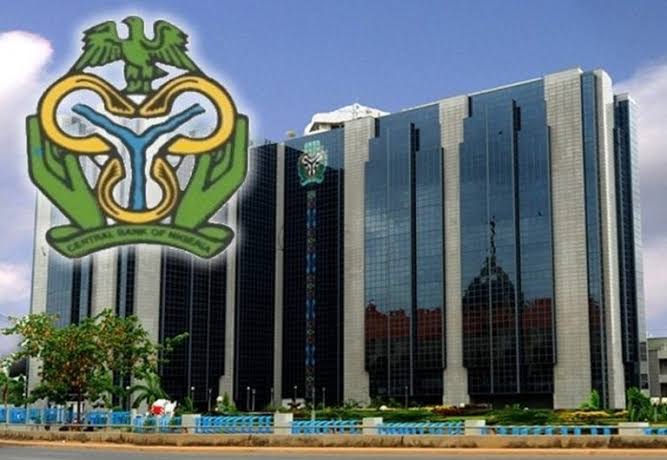The Central Bank of Nigeria’s liberalisation of the forex exchange market, which prompted portfolio investors’ return, boosted foreign capital inflows into the country by 190.45 per cent or $5.98 billion to $9.12 billion between January and October last year compared with $3.14 billion in the corresponding period of 2023, findings by New Telegraph has shown.
An analysis of the Central Bank of Nigeria’s (CBN) economic reports for JanuaryOctober 2024, as well as a review of Capital Importation reports, released by the National Bureau of Statistics (NBS), indicates that although there was a decline in capital inflow into the country in Q2 and Q3’24, the numbers were significantly higher compared with 2023.
Specifically, while NBS data shows that capital inflows rose to $5.98 billion between January and June last year, up from $2.16 billion during the same period in 2023, CBN data indicates that inflows stood at $3.14 billion between July and October last year compared with $980 million in the corresponding period of 2023.
Indeed, the economic report for October 2024, recently released by the apex bank, stated that capital inflow rose by 372.5 per cent to $1.89 billion from $400 million in the preceding month.
The report said: “Capital inflow significantly increased, driven, mainly, by increased portfolio investments in both equity and money market instruments.
Capital inflow rose to $1.89 billion, from $0.40 billion in September 2024. “A breakdown showed that portfolio investment inflow increased significantly by 403.57 per cent to $1.41 billion, from $0.28 billion due, mainly, to higher purchases in equity and money market instruments.
Similarly, foreign direct investment notably increased by 350.00 per cent in October to $0.18 billion from $0.04 billion in September 2024. Other investments in the form of loans also increased by 275.00 per cent to $0.30 billion, from $0.08 billion in the preceding month.”
The report further stated: In terms of share, portfolio investment inflow constituted 74.65 per cent, while ‘other investment’ and direct investment accounted for 15.80 and 9.55 per cent, respectively.
“Analysis of capital importation by sector indicated that the banking sector accounted for 49.21 per cent of total inflow.
This was followed by the financing sector (26.12%), production and manufacturing sector (9.72%), brewery (5.55%), telecommunication (4.65%), construction (3.39%), shares (0.73%), while other sectors accounted for the balance.
“Capital inflow by originating country showed that the UK was the major source of capital, accounting for 54.80 per cent of the total.
This was followed by the United States of America (13.89); Netherlands (8.88%); Republic of South Africa (8.12%); Singapore (4.30%); and Mauritius (3.10%). Other countries accounted for the balance.
“Capital importation by destination showed Lagos State and the Federal Capital Territory as the only recipients of foreign capital, with shares of 55.23 and 44.77 per cent, respectively.”
Analysts attribute the significant increase in capital inflow in 2024, compared with the previous year, to the return of portfolio investors occasioned by the CBN’s liberalisation of the forex exchange market.
The forex liberalisation policy saw the apex bank allowing the naira to freely trade in a bid to boost forex inflows as part of President Bola Tinubu’s reforms, which also included the removal of the subsidy on petrol.
In his address at the Chartered Institute of Bankers of Nigeria’s (CIBN) 59th Annual Bankers’ Dinner in November last year, CBN Governor, Olayemi Cardoso, emphasised that the bank’s efforts to improve the functioning of the FX market were having the desired impact as average daily turnover in the Nigerian Autonomous Foreign Exchange Market increased by 226 percent in the first half of the year, while foreign exchange reserves rose from $32 billion in May 2023 to over $40 billion.
He further said: “An enabling policy environment has led to a doubling of monthly remittances from an average of $300 million in 2023 to nearly $600 million in August 2024.
We are committed to further integrating the Nigerian diaspora into our financial system, exemplified by the introduction of the nonresident BVN registration.“
Analysts note that as part of its efforts to enhance transparency and remove market distortions, the CBN, on December 2 last year, began implementing its Electronic Foreign Exchange Matching System (EFEMS) for foreign exchange transactions in the Nigerian Foreign Exchange Market (NFEM).
The CBN also raised the benchmark interest rate- the Monetary Policy Rate (MPR)- by 875 basis points to 27.5 per cent in 2024 to tackle inflation and attract portfolio investors hungry for yields.















